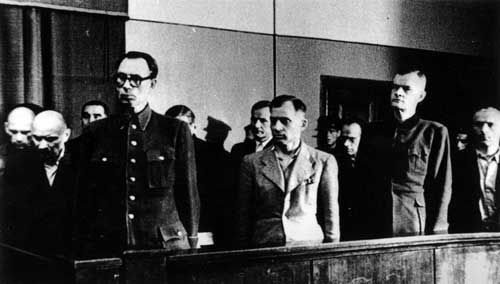On 2 August 1946, an official announcement from the Military Collegium of the Supreme Court of the USSR on the verdict of the trial of Andrey Vlasov and his accomplices was published in the newspapers “Pravda” and “Izvestia”.
It was initially planned to hold a public trial against Vlasov and his accomplices in the Oktyabrsky Hall of the House of Unions, but, fearing that the defendants would present anti-Soviet views, “which would probably be supported by a certain part of the population, dissatisfied with Soviet power”, it was decided to hold a closed court session. Twelve of Vlasov’s accomplices, so-called “agents of German intelligence, who perpetrated espionage-sabotage and terrorist activities against the Soviet Union” were also brought to trial. In fact, Andrey Vlasov, Fedor Trukhin, Sergey Bunyachenko, Mikhail Meandrov, and others had been handed the death penalty even earlier, during a meeting of the Politburo of the Central Committee of the Communist Party of the Soviet Union on 23 July 1946. As a result of formal judicial proceedings, all of the accused were found guilty, stripped of their military ranks and sentenced to death by hanging; their property was confiscated.
The execution was carried out on 1 August, the day before the official announcement. The executed men were cremated at an NKVD crematorium. The remains were dumped in a ditch of the Donskoy Monastery.
On 1 November 2001, the Military Collegium of the Supreme Court of the Russian Federation refused to rehabilitate Vlasov and others; however they were acquitted under Article 58 of the RSFSR Penal Code (anti-Soviet agitation and propaganda) and the case was closed due to the absence of the perpetration of a crime. The rest of the sentence remained unchanged.
Source:
General Vlasov. History of betrayal in two volumes. Moscow, 2015.
























